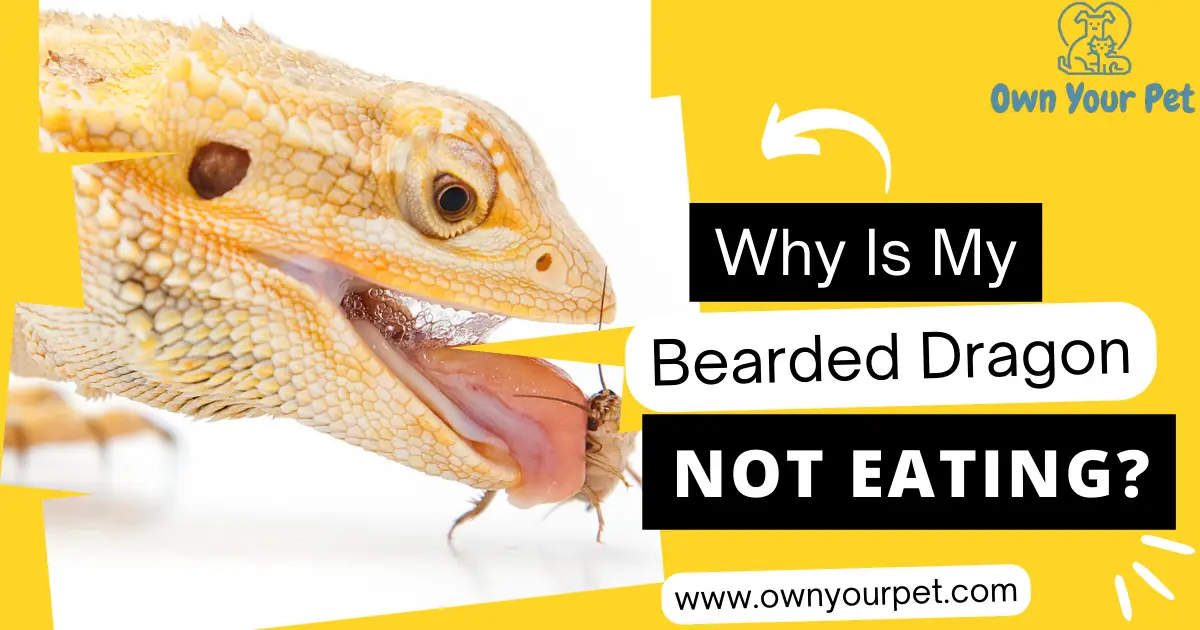Are you worried about why your bearded dragon is not showing interest in its favorite food? Don’t fret! In this informative guide, we’ll delve into the top reasons behind their decreased appetite. From picky eaters and periods of time like brumation to the influence of feeder insects, we’ll unravel the mysteries.
Whether you’re a seasoned bearded dragon owner, adult bearded owner or caring for a baby dragon, understanding the causes of appetite loss in adult and baby bearded dragons is crucial. Get ready to discover the secrets behind why your beloved reptile might be experiencing a decrease in appetite. Let’s dive in!
Bearded Dragon Not Eating: Complete Guide
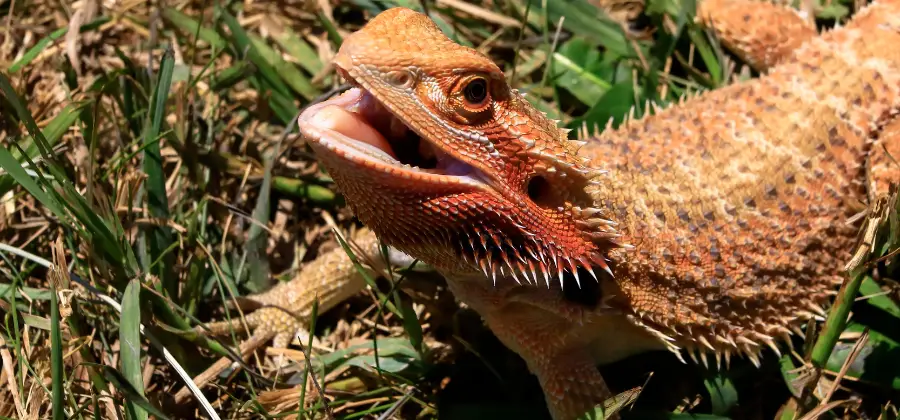
Bearded dragons are popular reptiles kept as pets, known for their calm demeanor and ease to take care of. However, it can be concerning when your bearded dragon suddenly stops eating. Several factors can contribute to your pet’s loss of appetite, and being aware of these factors can help you identify and resolve the issue.
The most common reason for a bearded dragon not eating is an inadequate environment. This can include issues with temperature regulation, incorrect lighting, and stress from their surroundings. Bearded dragons thrive in specific temperature ranges and require ultraviolet (UV) lighting to digest their food properly.
It’s essential to maintain the ideal habitat conditions and provide a full-spectrum UVB light source to ensure they remain healthy and active.
Furthermore, illnesses or parasites can also be a cause of inappetence in bearded dragons. If the environmental factors are correct and your bearded dragon is still not eating, it’s important to consult with a veterinarian to check for any underlying health problems that may be affecting their appetite.
Exploring these factors and working closely with veterinary professionals can help you get to the root of the issue and ensure your bearded dragon’s well-being.
Why Bearded Dragons Stop Eating
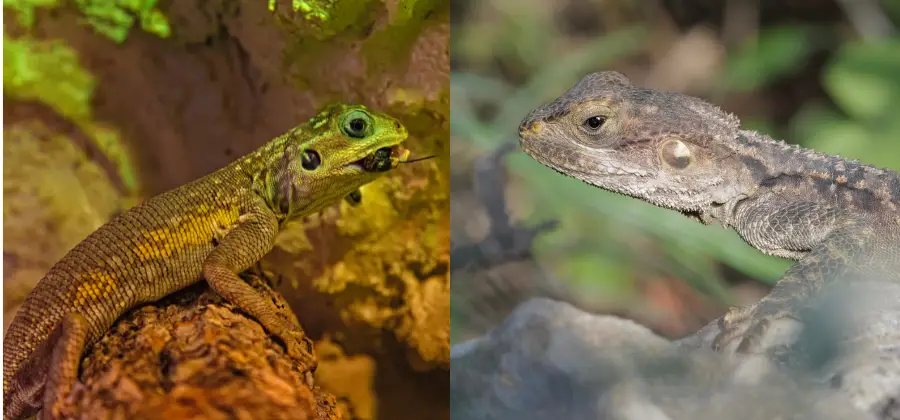
There are several reasons why a bearded dragon might stop eating. In this section, we will explore some of the common causes, including stress, brumation, impaction, infection, shedding, illness, and injury.
Stress
Stress is a common reason for bearded dragons to stop eating. It can be caused by various factors such as a new environment, improper temperature, or insufficient hiding spots in their enclosure.
Reducing stress through proper husbandry, habitat setup, and a quiet environment can help your bearded dragon feel more at ease and encourage them to eat again.
Brumation
Brumation is a hibernation-like state that bearded dragons enter during colder months or when their environment becomes less favorable. During this time, their metabolism slows down, and they may stop eating altogether.
Brumation is a natural process, and it is essential to monitor your bearded dragon’s weight and overall health during this period.
Impaction
Impaction is a blockage in the digestive system caused by ingesting materials that cannot be digested, such as substrate or large insect exoskeletons. Impaction can be life-threatening if not addressed promptly.
Signs of impaction include a lack of appetite, lethargy, and difficulty passing waste. Providing proper substrate and appropriate-sized food items can help prevent impaction.
Infection
Infections in bearded dragons can cause various health issues, including loss of appetite. Both internal and external infections can lead to your bearded dragon not eating. If you suspect an infection, it is crucial to consult with a veterinarian experienced in reptile care to receive proper treatment.
Shedding
Shedding is a normal process for bearded dragons, during which they may lose their appetite. The process can be uncomfortable and sometimes cause stress. Regularly misting your bearded dragon during the shedding process can help ease their discomfort and promote a healthy shed.
Illness
Various illnesses can cause a bearded dragon to stop eating. Some common health problems include metabolic bone disease, respiratory infections, and organ dysfunction. Maintaining a proper diet, environment, and regular veterinary care is essential in preventing and addressing any health issues.
Injury
Injuries, whether internal or external, can cause a bearded dragon to lose their appetite. In the case of an injury, it is important to consult with a qualified veterinarian to ensure proper treatment and care for your bearded dragon.
Regularly inspecting their enclosure for any hazards can help prevent injuries.
Environmental Factors
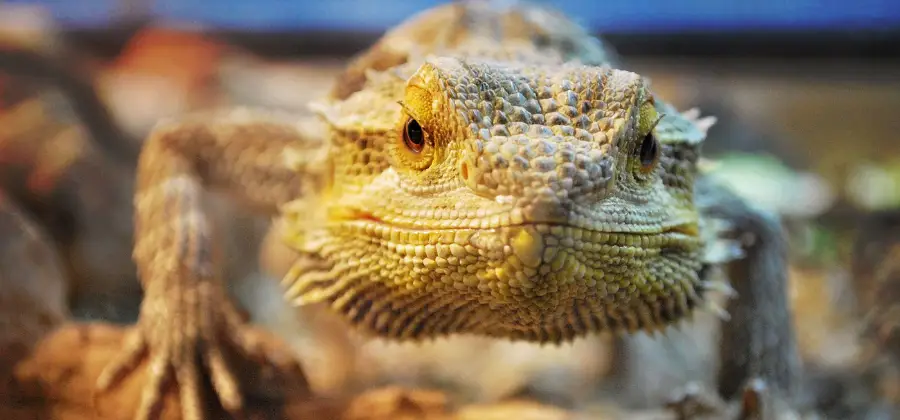
Temperature
Bearded dragons are cold-blooded animals that rely on external sources of heat to regulate their body temperature. Providing an appropriate temperature gradient in their enclosure is essential for their overall health and appetite.
The basking area of the enclosure should have a temperature ranging from 95-105°F (35-40.5°C), whereas the cooler side should be around 75-85°F (24-29°C).
These temperatures can be achieved using heating equipment such as ceramic heaters, heat lamps, or under-tank heating pads. Monitoring and adjusting the temperature inside the enclosure is crucial, as incorrect temperatures can lead to a bearded dragon not eating and eventually health issues.
Lighting
Proper lighting plays a significant role in the well-being of a bearded dragon. They require access to UVB light to synthesize vitamin D3, which is necessary for calcium absorption and bone development. A lack of UVB lighting can lead to disorders, such as metabolic bone disease and reduced appetite.
It is recommended to provide a UVB light for at least 10-12 hours a day, placed 6-8 inches above the basking area. Replace the UVB bulbs every six months, as their efficacy decreases over time, even if they continue to emit visible light.
Humidity
Bearded dragons originate from arid environments in Australia, so it is essential to maintain a low humidity level in their enclosure. The ideal relative humidity for bearded dragons is between 30-40%.
High humidity levels can cause respiratory issues and create an environment for bacterial and fungal growth, which can consequently lead to loss of appetite.
To maintain the appropriate humidity level, use a hygrometer to measure it inside the enclosure. If the humidity is too high, you can use a dehumidifier or increase the ventilation by adding mesh panels on the sides of the enclosure. On the other hand, if the humidity is too low, you can add a small water dish or occasionally mist the enclosure with water.
My new Bearded Dragon WON’T EAT – What do I do? Watch this
Diet and Nutrition
Lack of Appetite
If your bearded dragon is not eating, one possible cause may be a lack of appetite. This can be due to various reasons such as stress, illness, or changes in their environment.
If your bearded dragon shows no interest in food for more than a couple of days, it’s important to consult with a veterinarian to determine the underlying cause and ensure their well-being.
Insects and Vegetables
A balanced diet is crucial for a bearded dragon’s health. Their diet should consist of both insects and vegetables. Offering a variety of insects, such as crickets, mealworms, and dubia roaches, can encourage feeding and maintain proper nutrition.
It is essential to provide vegetables that are rich in nutrients and safe for your bearded dragon to eat, such as collard greens, mustard greens, and bell peppers.
When feeding a baby bearded dragon, their diet should consist of mostly insects, with the ratio gradually shifting towards more vegetables as they grow older. Adjusting the proportions of insects and vegetables in their diet can help improve their appetite and overall nutrition.
Vitamins
An essential aspect of a bearded dragon’s diet is the supplementation of vitamins, particularly calcium. Insufficient calcium intake can lead to nutritional secondary hyperparathyroidism or metabolic bone disease (MBD).
To prevent this condition, dust their food with calcium powder and ensure they receive adequate exposure to UVB light to synthesize vitamin D3, which aids in calcium absorption.
Incorporating other essential vitamins, such as vitamin A and B-complex, is also important for your bearded dragon’s health. You can achieve this by offering a diverse range of vegetables as well as using multivitamin supplements.
By providing your bearded dragon with a well-rounded, balanced diet and addressing any concerns promptly, you can ensure their health and well-being.
Common Reasons and Solutions
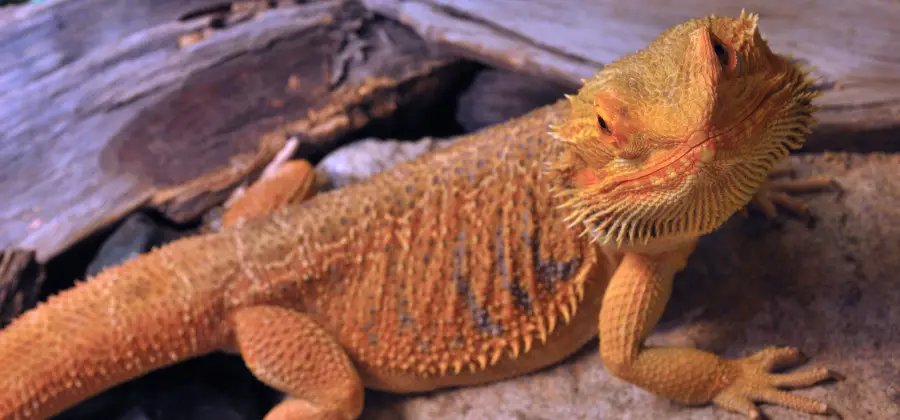
New Dragon and Relocation
When you bring home a new bearded dragon or relocate them to a new environment, they might experience stress, which can lead to a loss of appetite. This is particularly common in juveniles.
Give them some time to adjust and ensure their new setup meets their needs. Avoid handling them excessively during this period, as it can exacerbate stress.
Insufficient Lighting
Bearded dragons require proper lighting to maintain their health and appetite. They need both UVA and UVB light, as these are essential for digestion and calcium absorption. Ensure you are using appropriate reptile-specific bulbs and replace them according to the manufacturer’s recommendations.
Insufficient lighting can cause a bearded dragon to lose interest in food. To ensure optimal lighting conditions, follow these guidelines:
- Provide 12-14 hours of light per day
- Use a UVB light with a minimum output of 10% UVB
- Position the UVB light within 12 inches of your bearded dragon’s basking spot
- Replace UVB bulbs every 6-12 months, depending on the brand
Incorrect Diet
Bearded dragons have specific dietary needs, and providing an incorrect diet can cause them to lose interest in food. A balanced diet for a bearded dragon should include a mix of insects, vegetables, and fruits. The proportion of each will vary depending on the age of the dragon:
- Juveniles (up to 6 months old): 80% insects and 20% vegetables/fruits
- Sub-adults (6-12 months old): 50% insects and 50% vegetables/fruits
- Adults (12 months and older): 20% insects and 80% vegetables/fruits
Offer a variety of insect species but avoid feeding them mealworms, as they can cause intestinal impaction. Provide vegetables such as collard greens, mustard greens, and dandelion greens supplemented by small amounts of fruit.
Avoid feeding them lettuce, as it lacks nutritional value. Don’t forget to dust the insects with calcium and vitamin supplements before feeding them to your bearded dragon.
Ensuring your bearded dragon’s environmental conditions and diet are appropriate will help maintain its appetite and overall health. Pay close attention to these factors to prevent issues relating to their feeding behavior.
When to See a Vet
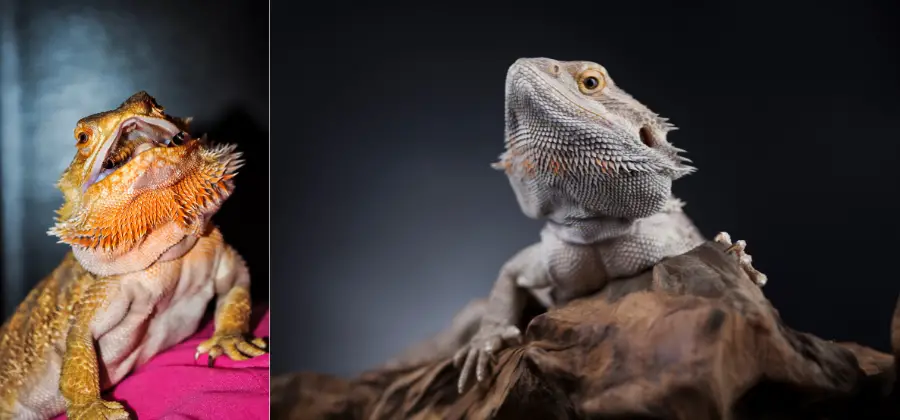
There are several signs that your bearded dragon might be experiencing a health issue and may need to see a veterinarian. It’s important not to ignore these signs, as they could indicate something more serious about your pet’s well-being.
If your bearded dragon is not eating for an extended period, this could be a sign of a health issue. However, occasional disinterest in food could be attributed to normal behavior, such as brumation (a reptilian hibernation), or changes in temperature and environment. It is important to observe their overall behavior and other signs to determine whether it warrants a visit to the vet.
One sign of potential health issues in bearded dragons is constipation. This can be identified by a lack of droppings or difficulty passing droppings. Constipation in bearded dragons can be caused by a variety of factors, such as improper diet, dehydration, or a more serious underlying issue that requires veterinary attention.
Another health issue to watch for is changes in your bearded dragon’s energy levels or behavior. If they are lethargic, refuse to bask, or are not as active as usual, it may be an indication that they are feeling unwell. A trip to the veterinarian can help determine the cause and get your bearded dragon the appropriate treatment they need.
When should I consider taking your bearded dragon to the veterinarian?
You should consider taking your bearded dragon to the veterinarian if they:
-Stop eating for a prolonged period
-Show signs of constipation or struggle to pass droppings
-Exhibit changes in energy levels or behavior
By taking your bearded dragon to the vet when they display these indicators, you can ensure that they receive proper care and maintain optimal health.
Caring for Your Bearded Dragon
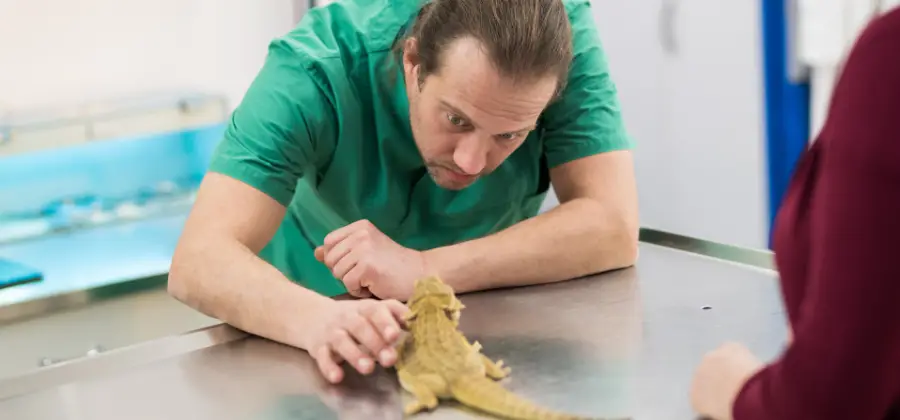
Feeding Tips
Feeding your bearded dragon properly is crucial for its overall health. Diet should include a mix of vegetables, fruits, and insects, as bearded dragons are omnivorous. Young dragons need more insects, while adults should have a balanced diet of insects and vegetation.
- Feed insects that are appropriately sized: it should be no larger than the space between your dragon’s eyes
- Dust insects with calcium and multivitamin supplements before feeding them to the dragon
- Fresh water should be available at all times in a shallow dish that is easy for the bearded dragon to access
Decor and Comfort
Creating a comfortable environment for your Pogona Vitticeps is essential for its well-being, and it makes your pet feel secure. The vivarium should mimic the their natural habitat and include:
Lighting and Heat
- Use UVB bulbs to ensure proper metabolism of calcium
- Provide a basking spot with a temperature between 95-110°F (35-43°C)
- Night temperatures should not drop below 65°F (18°C)
Accessories
- Provide hideouts: places for the bearded dragon to hide and rest
- Basking rocks: a place for the bearded dragon to bask and soak up heat
- Branches and logs: for climbing and exercising
Regular Health Checks
Pet owners should monitor their bearded dragon’s health and behavior to ensure they are thriving. Pay attention to the following:
- Appetite: Lack of appetite might indicate stress, some health issues, or inadequate temperatures in the vivarium
- Droppings: Healthy droppings are well-formed, dark brown, with some white/cream urates
- Weight: Rapid weight loss or gain can be a sign of underlying health issues
- Activity: Lethargy, excessive hiding, or lack of responsiveness are signs of distress
By following these guidelines, you ensure that your bearded dragon is well cared for, and it is less likely to experience problems like not eating. Remember, growing bearded dragons need extra care and attention, as do adults in times of stress. Be vigilant, aware of your pet’s needs, and your bearded dragon will thrive in your care.
Conclusion: Bearded Dragon Not Eating
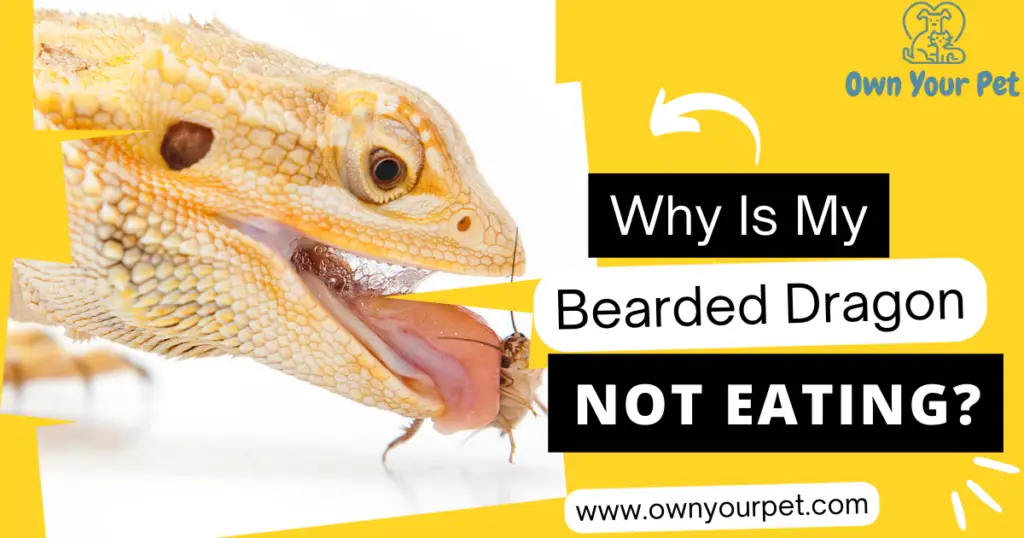
In conclusion, maintaining the health and well-being of your bearded dragon, whether they are a baby or an adult, requires attention to various factors. Providing a varied and healthy diet, including a good balance of plant material and protein from insects like pet crickets, is crucial.
Ensuring accurate temperatures, avoiding cold temperatures, and using appropriate substrates like reptile carpet or avoiding wood chips are important for their comfort. Regular check-ups with a qualified reptile veterinarian can help identify and address common issues such as parasitic infections and signs of stress.
Remember to offer fresh water, establish a proper feeding schedule, and create a suitable environment, including a cool spot. By paying attention to their food preferences, appetite suppression, and avoiding improper diets, you can keep your dragon healthy and minimize the risk of complications like broken bones or internal parasites.
